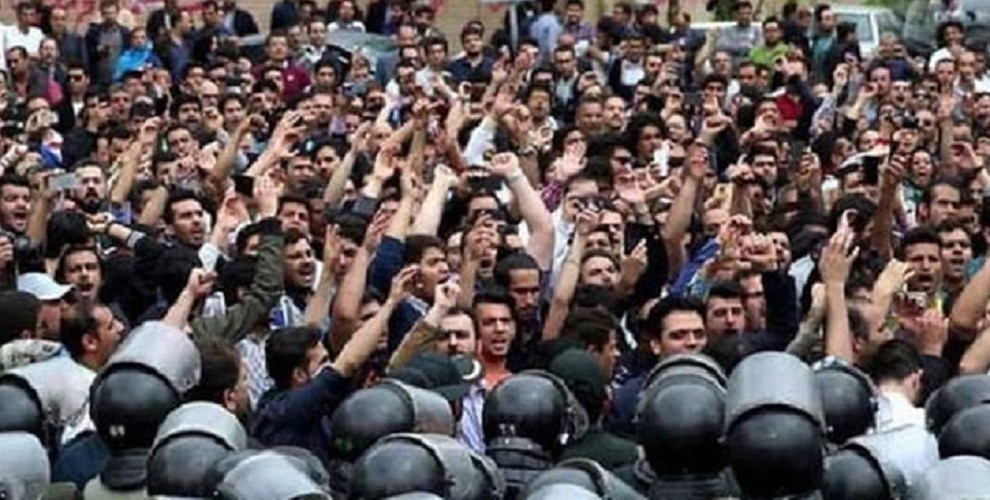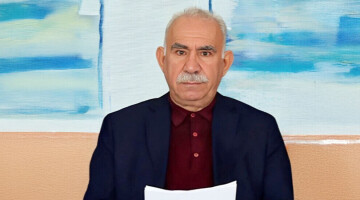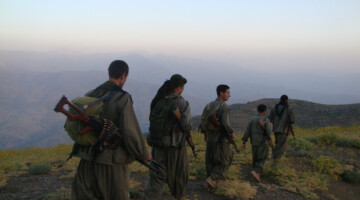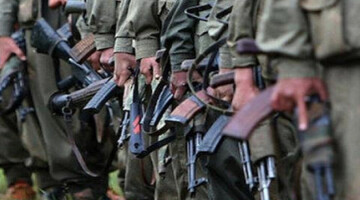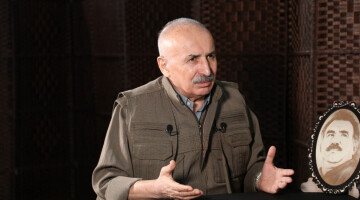The contradictions between Iran and the United States go back to a time before the founding of the Islamic Republic of Iran. With the founding of the Islamic Republic of Iran they have deepened further. Although these contradictions have led to conflicts from time to time over the last forty years, they have been more likely to be outside Iran. This conflict is evident in Iraq, Syria and Yemen. However, a period has now begun when conflict and confrontation in Iran's environs develops into direct interventions in Iran. The United States has unilaterally withdrawn from the Atomic Energy Agreement, initiating this process. However, the US is again using the well-known strategy of harnessing opposition forces in the country to prepare for intervention.
While the United States unilaterally withdrew from the nuclear deal to pave the way for intervention in Iran, countries such as France, Britain, and Germany have manifested an attitude pretending to be criticizing this withdrawal from the agreement. While a possible intervention in Iran was accelerated with the withdrawal from the nuclear agreement, France and Germany have made their own preparations. This shows that their criticism was a mere formality. Thus, shortly after the US withdrawal from the nuclear deal, a meeting under the lead of the People's Mojaheddin took place in Paris. Also in Cologne there was another conference organised by Iranian opposition groups. In the US, similar conferences and events were also held. This actually indicates that all three states are acting together with regards to intervention in Iran.
The roadmap of PJAK
While the US, France, England and Germany hold joint meetings and conferences with the opposition, and there is a rumor about an intervention, the strongest opposition group in East Kurdistan, the Party for a Free Life in Kurdistan (Partiya Jiyana Azad a Kurdistanê, PJAK), published a declaration which proposes democratization of Iran and a solution with the participation of all components from the inside instead of an external intervention. The declaration, released on July 12, received broad support. The PJAK has presented such a solution project because it trusts in democratic politics and organization as well as in its military power. Therefore, it received support from many different circles. The project was also supported by some factions of the four-part PDK-I (Partiya Demokratîk a Kurdistana Îranê) and some of the wings of the Komala and the Iranian Communist Party. However, a part of IKDP which is close to Turkey and of Komala greatly opposed this declaration. Because these parties do not have the power to change Iran, or to bring about a solution from within. Not only that, they are structures that have no grassroots in Iranian society. Therefore, they rely less on internal dynamics and on a common solution with the components of society. They are bound to external intervention and try to gain some achievements in this way.
The statements of the son of Shah Reza Pahlavi
Some 15 days after the release of the PJAK solution project, Reza Pahlavi, son of the fallen Shah Reza Pahlavi, tried to make a political statement with a few remarks. Pahlavi said the problems in Iran could be solved by federalizing the country and recognizing all the identities, languages and autonomies of the peoples of Iran. He underlined that they did not think to bring back the Shah regime. Although he did not mention the name, he said much about the content of the PJAK solution project. Therefore, he was accused by some circles of having "stolen" the project of the PJAK.
Calls made again to take to the streets
The People's Mojahedin preparing to intervene with Iranian at various meetings and conferences in Paris, Cologne and the United States, the National Sect group and other circles known as reformists that are living in the US and Europe, started to call on the people to stage demonstrations in order to accelerate an intervention in Iran.
The people of Iran started demonstrating in Isfahan and some other cities. However, these actions did not reach the expected extent. The Kurdish and the Baloch people did not pay attention to these calls. Therefore, demonstrations did not take place in either the Kurdish or the Baloch cities. Their cautious behavior is said to be due to the PJAK project. This attitude shows that the PJAK and the Baloch organizations have an organizational force and a base in the population and demonstrate their attitude in the sense of a solution process.
Kurdish and Baloch people are provoked
The groups known as opposition forces, which call for the population to take to the streets, reacted to the reluctance of the Kurdish and Baloch people and tried to provoke their population. One of these groups is the People's Mujahedeen, supported by the French state. Their bases are in France. Contrary to their left-wing claims, they behave chauvinistically towards the Kurds and the Baloch people. There are a number of documents proving that the group worked with Saddam Hussein during the Iran-Iraq war, and took part in the Anfal genocide of the South Kurdish population.
The problems are solved with inner dynamics and democratization
An intervention in the region has never been able to bring about a positive solution. The clearest example is Iraq. The situation Iraq found itself in starting from 1991, and following the US intervention in 2003, proves eminently that an external intervention is a deadlock, chaos and crisis rather than a solution. Syria is another such example. The region has never accepted external intervention. The Crusades are a good example of this. History has shown that the region is closed to outside intervention because of its faith, culture and independence-seeking character. For this reason, an intervention in Iran will bring no solution. That's why the PJAK has presented their project to develop a solution based on internal dynamics. It would not be wrong to say that this project is for the benefit of all peoples in Iran and the region. The weakness of the protests, called for by groups relying on external intervention in Iran, proves this.

